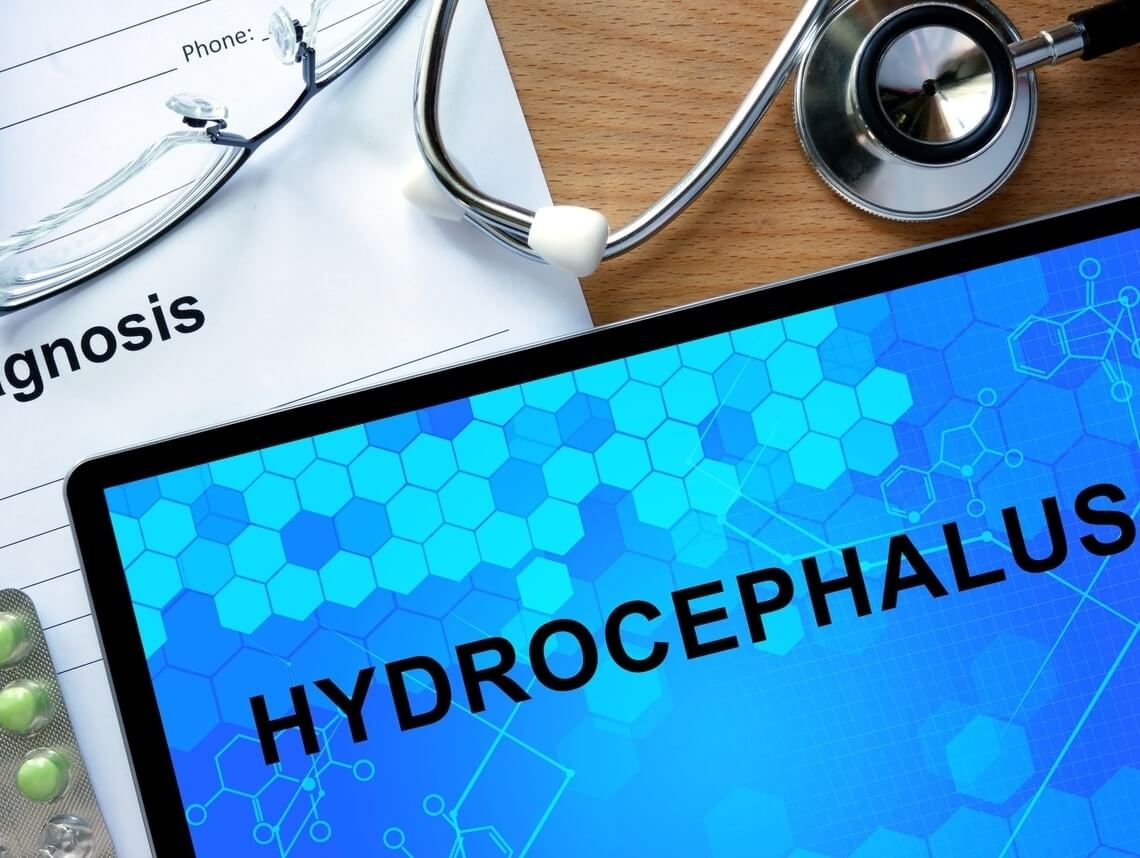
Finding out that a loved one has been diagnosed with a serious medical condition is overwhelming and life-changing. All of a sudden, the only things that matter are finding out about the illness and what you can do to treat it — while keeping your loved one as comfortable as possible. It can feel even more disconcerting if the condition is not as well-known within the general population as others. Such is the case with hydrocephalus. What, exactly, does it mean? What causes it? What are the most common symptoms? And, what’s the best form of treatment?
What is hydrocephalus?
Hydrocephalus is the medical term used to refer to buildup of fluid in the cavities (ventricles) deep within the brain. This excess fluid increases the size of the ventricles and puts pressure on the brain. As a result, brain tissue is damaged — which affects brain function. While the condition can occur at any age, most diagnoses are made in patients who are infants or more than 60 years of age. In fact, it is the most common reason for brain surgery in children. If the condition is present at birth, it may result in intellectual and/or physical disabilities.
Hydrocephalus Causes
While a person may be born with hydrocephalus — or develop the condition from a traumatic head injury — it often results from underlying medical conditions. The most common ones include the following:
- Spina bifida
- Brain tumors
- Meningitis
- Infections of the spinal cord
- Intraventricular hemorrhage
- Aqueductal stenosis
- Brain malformations
Hydrocephalus Symptoms
The symptoms of hydrocephalus can vary depending on the person’s age. The most common ones include the following:
Symptoms of Hydrocephalus in Babies
- An unusually large head
- A bulging or tense soft spot (fontanel) on the top of the head
- A rapid increase in the size of the head
- Vomiting
- Sleepiness
- Poor growth
- Poor feeding
- Irritability
- No muscle tone
- Gaze fixed downwards
- Seizures
- Poor responsiveness to touch
Symptoms of Hydrocephalus in Older Children
- Headaches
- Poor coordination
- Delayed motor skills
- Blurred vision
- Gaze fixed downwards
- Poor appetite
- Vomiting
- Inability to keep their balance
- Urinary incontinence
- Lethargy
- Seizures
- Abnormal enlargement of a toddler’s head
- Irritability
- Change in personality
- A decline in school performance
Symptoms of Hydrocephalus in Adults
- Urinary incontinence
- Poor coordination
- Inability to maintain their balance
- Memory loss
- Changes in gait when walking
- Declining reasoning skills
- Headache
- Lethargy
- Impaired vision
Hydrocephalus Treatment
There are several types of treatment to manage hydrocephalus. In fact, early detection and intervention can help a person lead a relatively full and active lifestyle. However, keep in mind that the severity of the condition will have an effect on the person’s quality of life. The most common forms of treatment include:
- Using a Shunt: This is a surgical instrument used to drain fluid from the brain. The tube is inserted in the head and tunneled under the skin to another part of the body where the fluid can be absorbed more easily. This could be in a body part far from the brain, such as the chest or abdomen.
- Endoscopic Third Ventriculostomy (ETV): This procedure punctures a membrane on the third ventricle of the brain to create a pathway for the flow of fluid. The surgeon is able to look inside the brain through a small video camera at the end of their surgical instrument.
- Choroid Plexus Cauterization (CPC): The choroid plexus is located in the innermost portion of the brain, close to the spinal cord. It lines all ventricles of the brain. For this procedure, the surgeon burns choroid plexus tissue. This allows the excess fluid trapped within one of the brain’s ventricles to escape into its normal pathways.
Keep in mind that the best way to ensure your child’s likelihood of successful treatment is to undergo these procedures as soon as possible. Therefore, if you have a baby, always make sure to keep every single one of their well-baby appointments. This will allow their pediatrician to closely monitor your child’s physical development, as well as their motor skills.
Contact Care Options for Kids For Pediatric Home Health Care
It can be hard to balance your time between work, home, and caring for a child who has a genetic disorder. Homecare providers offer the support you or your loved one needs.
That’s why our team of skilled professionals at Care Options for Kids are here to help. Our home care services offer support in the comfort of your home. We refer loving and competent caregivers to provide customized care for families – from a few hours a day to around-the-clock supervision. Contact us directly to speak with a home health care professional or request a free in-home assessment. Together we can determine the best plan of action to keep your loved ones happy and healthy.
If you are considering pediatric home health care services, contact the caring staff at Care Options for Kids. Call today at (888) 592-5855.
